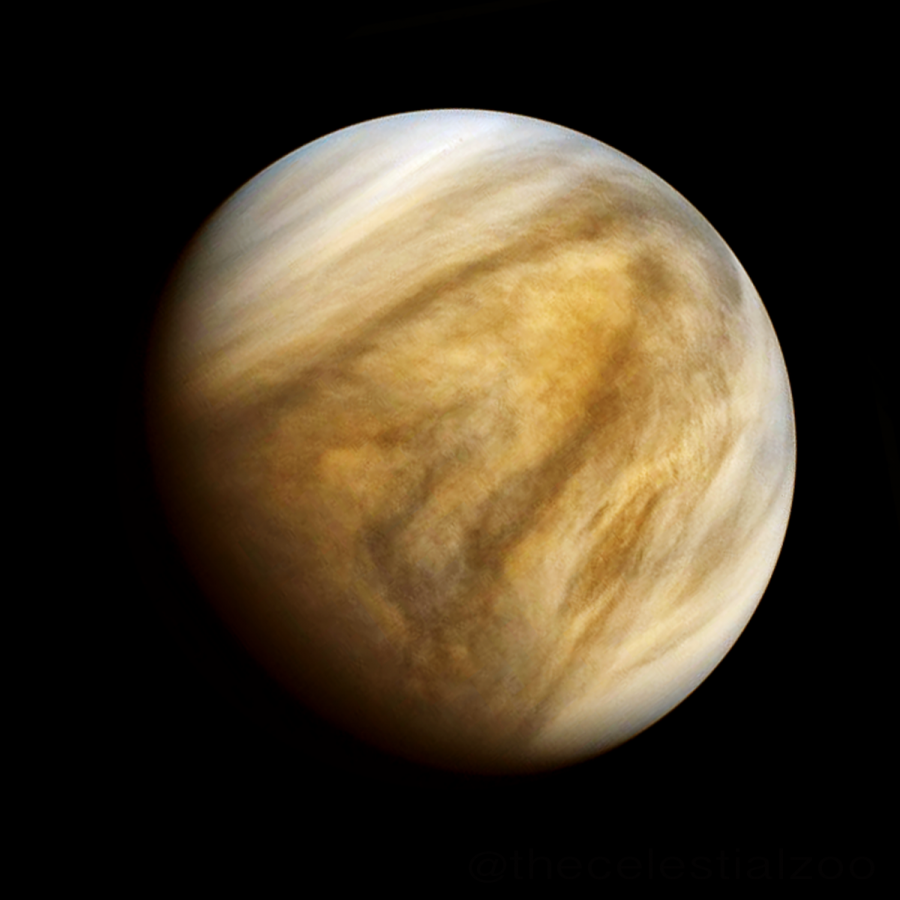A research group composed of scientists across the nation discovered large amounts of phosphine in Venus’ clouds on Sept. 14, which might mean that life could be found on the planet, according to The Times Record.
Phosphine is a chemical composed of one part phosphorus and three parts hydrogen. It is a common bi-product of microorganisms, which are organisms too small to see without a microscope, that thrive in environments with no oxygen, as stated in The Times Record.
While this is not a definite sign of life, researchers have been working to rule out other possibilities that could explain the presence of phosphine. However, no other solution creates enough phosphine to be linked.
This chemical is only found on three other planets: Saturn, Jupiter and Earth. Saturn and Jupiter are both gas giants (large planets made up mostly of gases) with an abundance of hydrogen, which, according to Space.com, explains the presence of the chemical.
On Earth, the chemical is steadily produced by unknown organisms, according to The Times Record.
According to Scientific American, Venus’ clouds have a similar pressure, temperature and altitude to the Earth’s pressure, temperature and altitude at sea level. That being said, the clouds are composed mainly of sulfuric acid, which would likely kill any microbes similar to those found on Earth.
It is possible that these microbes are an evolved version of Earth’s. As a result of Venus’ lack of global tectonic plates, which make up and shape the surface of Earth, carbon dioxide created an accelerated greenhouse effect which evaporated any water that was once on the planet, according to The Times Record. According to BBC.com, the plates move and bring carbon dioxide into and out of the planet. Carbon dioxide is a greenhouse gas, it thickens the atmosphere surrounding Earth and traps the heat in. This process is similar to greenhouses for plants. The structure keeps the heat inside to warm up the plants. Venus has no global plates, meaning there is no way for the carbon dioxide to be easily absorbed.
It is estimated that water could have been on the planet for millions of years, which would have been long enough for microbes to evolve to survive the harsh environment as the water evaporated, according to The Times Record.
Earth’s microbes need water to survive. According to Scientific American, if these microbes evolved to survive without water, there is a high possibility that they could be common in the universe.
According to Space.com, a Soviet Union probe found traces of a chemical containing phosphorus in Venus’ clouds in the 1980s. Their technology was not powerful enough to properly identify what this chemical was, but it is possible that what they found was phosphine.
If in just 40 years technology has developed to the point where scientists can identify possible life on planets, imagine another what can be found in another 40 years.








